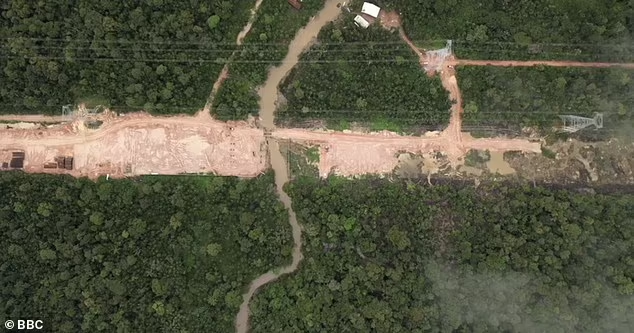
From a Thousand Bandages to a Single Cure: Why the UN Must Adopt Areaism to Save the Planetary System
The United Nations' Sustainable Development Goals (SDGs) represent the pinnacle of global good intentions. Yet, from the perspective of Areaism, this roadmap leads directly off a cliff. The SDGs are not a solution; they are the most comprehensive expression of the failed ideology that created the crisis in the first place: Sectoralism.
From a Thousand Bandages to a Single Cure: Why the UN Must Adopt Areaism to Save the Planetary System
Institute of Area Management, Iba, Zambales Philip G. Camara, Founder September 18, 2025
The United Nations' Sustainable Development Goals (SDGs) represent the pinnacle of global good intentions. A colourful wheel of 17 ambitious targets—from "No Poverty" to "Climate Action"—it is the world's official roadmap to a better future. Yet, from the perspective of Areaism, this roadmap leads directly off a cliff.
The SDGs are not a solution; they are the most comprehensive expression of the failed ideology that created the crisis in the first place: Sectoralism.
They are an attempt at healing by a thousand bandages, a futile effort to patch a system that is hemorrhaging from a fundamental, self-inflicted wound. With the nine planetary systems that sustain all life approaching irreversible tipping points, we do not have time for bandages. The United Nations must formally adopt the ideology of Areaism to begin the genuine, integrated healing the world desperately needs.
The SDGs: A Masterclass in Sectoral Fragmentation
The very structure of the SDGs reveals their fatal flaw. They are a checklist of 17 separate problems to be solved in 17 separate silos. One UN agency is tasked with "Zero Hunger" (SDG 2), while another tackles "Industry, Innovation and Infrastructure" (SDG 9), and a third focuses on "Life Below Water" (SDG 14).
This is Sectoralism in its purest form.
It mirrors the fragmented logic that allows an economic ministry to approve a dam (addressing SDG 9) that displaces indigenous communities (violating SDG 10) and destroys a river ecosystem (violating SDG 14 and 15) in the name of "progress." It allows for the absurd situation where nations subsidize industrial agriculture to increase "yields" while simultaneously funding programs to deal with the resulting soil degradation and water pollution.
Each goal, pursued in isolation, often works in direct opposition to another. The framework provides no inherent self-regulating mechanism to optimize for the health of the whole system. It is a bureaucratic attempt to manage symptoms while the disease of fragmentation rages unchecked.
The Nine Planetary Systems Don't Have Time
The greatest fallacy of the SDG approach is that it is utterly divorced from the biophysical reality of our planet. The Earth does not operate in 17 separate silos. It operates as a single, deeply interconnected system governed by nine critical boundaries: climate change, biosphere integrity, freshwater use, land-system change, and so on.
These are not individual problems; they are one interwoven life-support system. Pushing past the boundary on land-system change (deforestation) directly impacts the boundaries for climate change, biodiversity, and freshwater. They are a single, holistic entity. Attempting to "solve" them with a sectoral checklist is like asking a team of 17 different specialists to treat a patient's failing organs without a single one of them looking at the person's overall health or the disease causing all the organs to fail.
The planetary system is telling us we need a holistic cure, but the UN keeps prescribing more bandages.
Areaism: The Integrated Cure
The United Nations must make a courageous choice: to transcend the failed ideology of its founding era and formally adopt Areaism as its guiding principle for the 21st century.
Areaism is the antidote to fragmentation. It understands that the health of the planet, the prosperity of its people, and the stability of our geopolitics are not separate goals to be balanced against each other. They are all emergent properties of healthy, well-managed, and self-regulating Areas (or Biodistricts).
Instead of a 17-point checklist, Areaism has one single, unifying mandate: optimize the well-being of the households within an Area by enhancing the natural carrying capacity of their ecosystem and allowing consensual mechanisms to flourish with Area Management techniques.
This elegant, integrated goal achieves what the SDGs cannot:
It stops geo-political conflict by building resilience from the ground up. Secure, self-reliant biodistricts have less reason to enter into resource wars.
It restores life-giving soils and aquifers because their health is no longer an "externality" but a primary asset on the Area's balance sheet.
It genuinely liberates the burdened masses not with top-down aid programs, but by giving them, through the consensual governance model articulated by Elinor Ostrom, direct agency over the management of their own resources.
If the UN were to champion this, its role would transform. It would cease to be a forum for competing sectoral interests and become a global facilitator, empowering a network of biodistricts to heal the planet from the ground up. It should demand an Earth Tariff of ½ a Carbon Credit for every barrel of oil extracted from the earth for the UN to dispense to Areaistic communities like the Indigenous Peoples.
A New Mandate for a New Era: The Era of Areaism
The SDG wheel is a beautiful monument to a dying paradigm. It is the last, best effort of a sectoral world to solve a holistic problem. It will not work. Continuing down this path is a guarantee of systemic collapse.
The only viable path forward is for the United Nations to lead a global paradigm shift. It must declare that the health of integrated, place-based socio-ecological systems is the new measure of a nation's wealth and progress.
It must formally adopt the principles of Areaism, setting a new course not for "sustainable development," but for global, systemic regeneration. This is the only way to stop the next mega-war, restore our planetary life-support systems, and finally begin the genuine healing that humanity and the Earth deserve.
About Philip G. Camara
Philip Camara is the founder of the Institute of Area Management and a leading advocate for sustainable community development through the principles of Areaism. His work focuses on transforming how communities organize themselves for collective well-being and ecological resilience.


